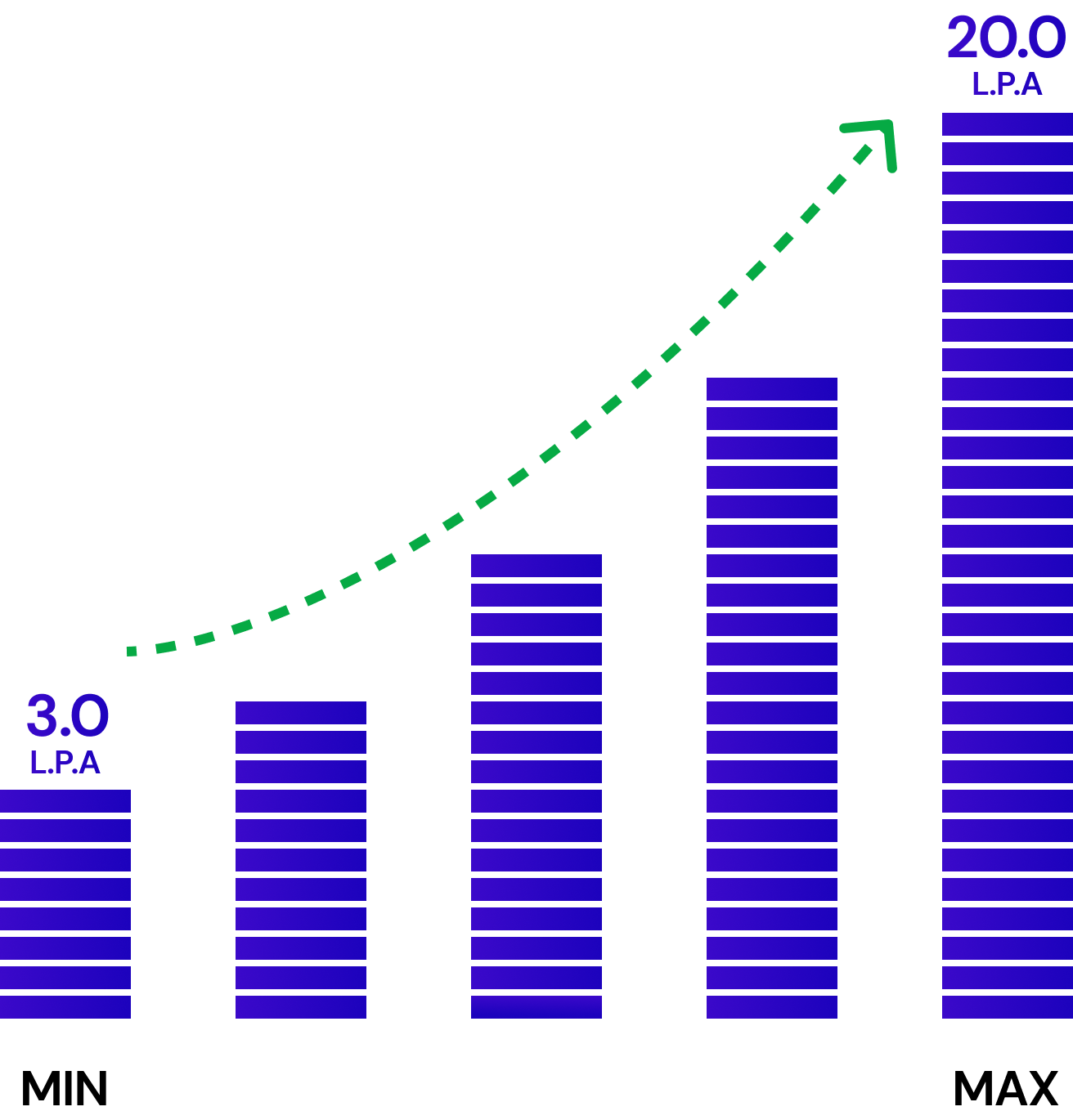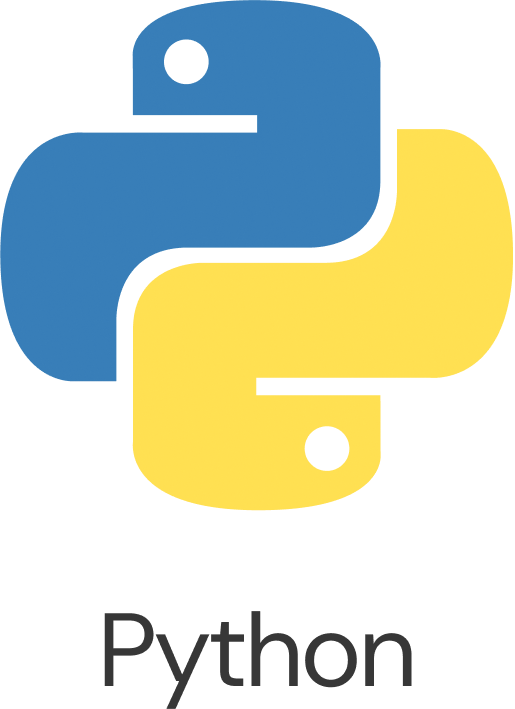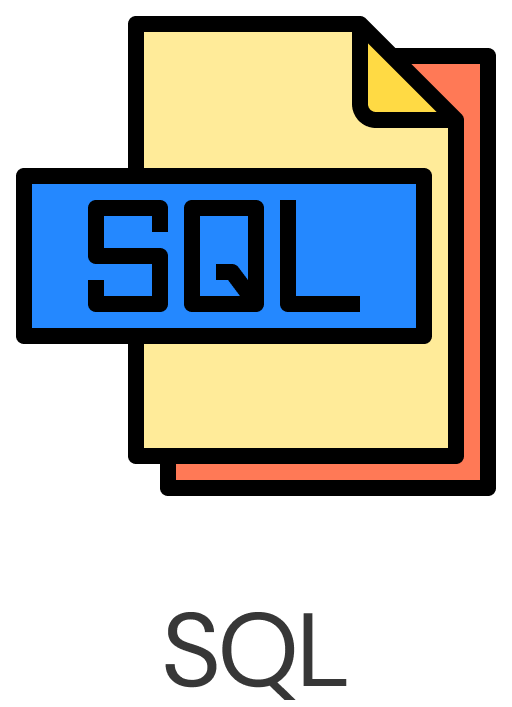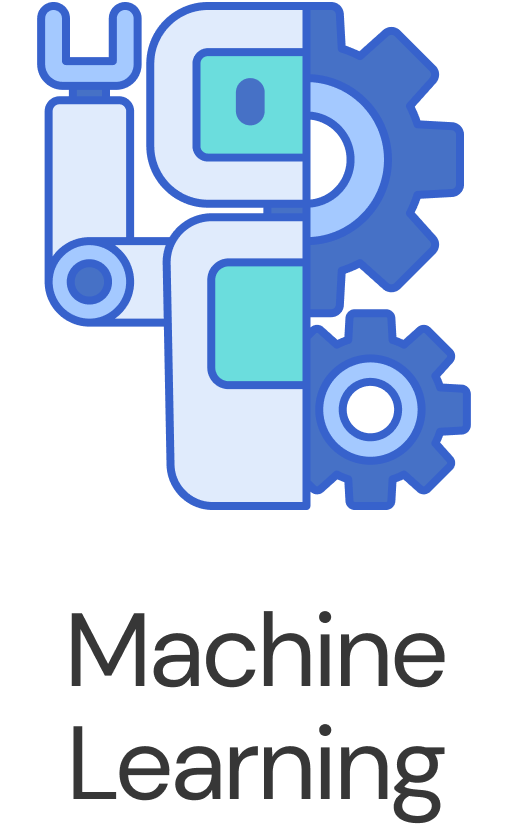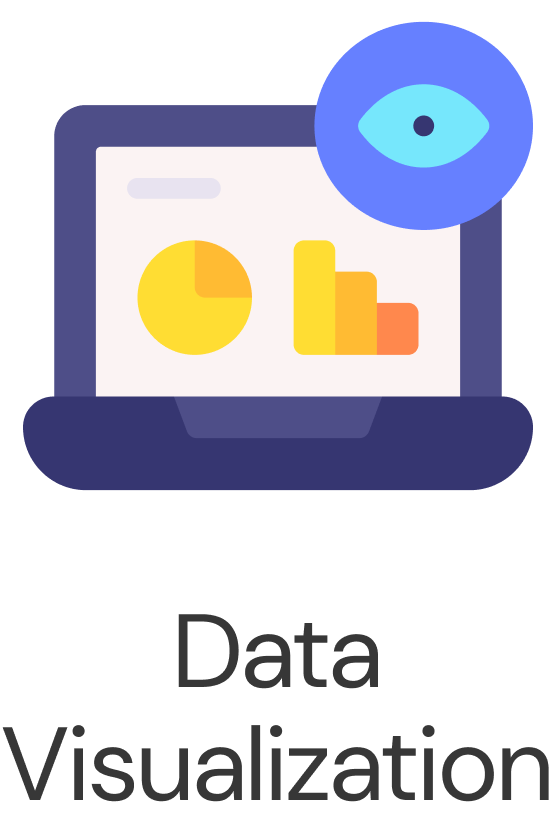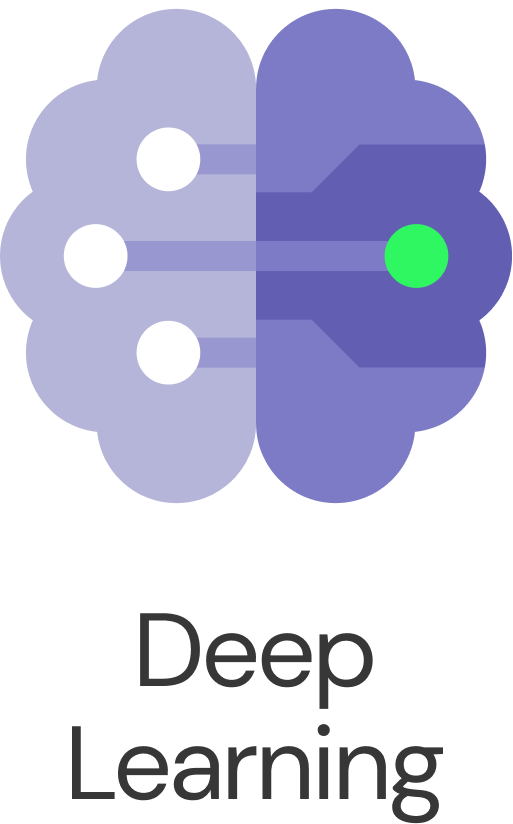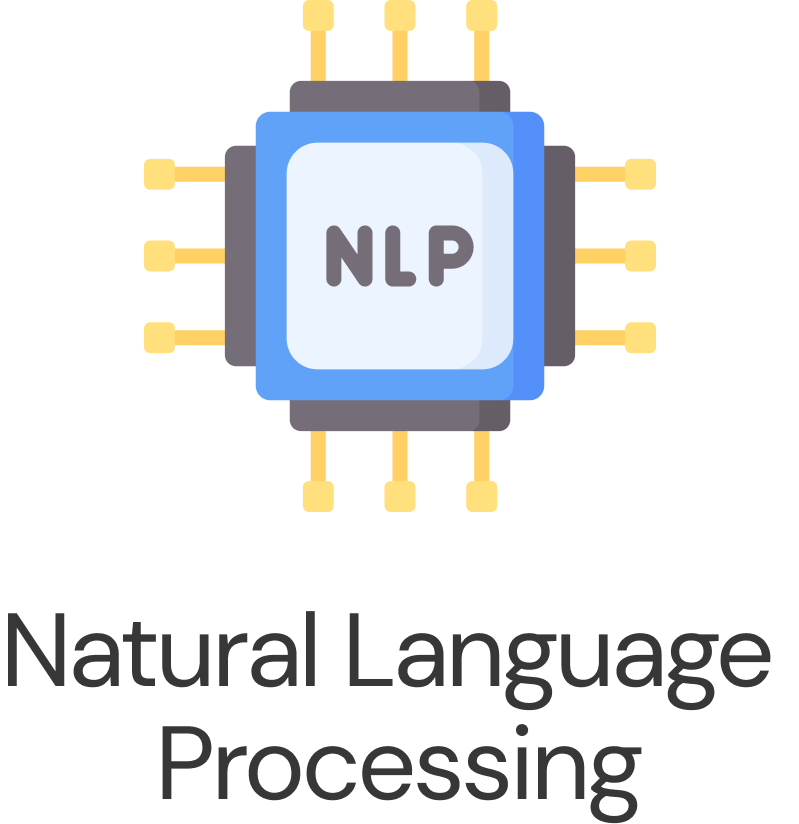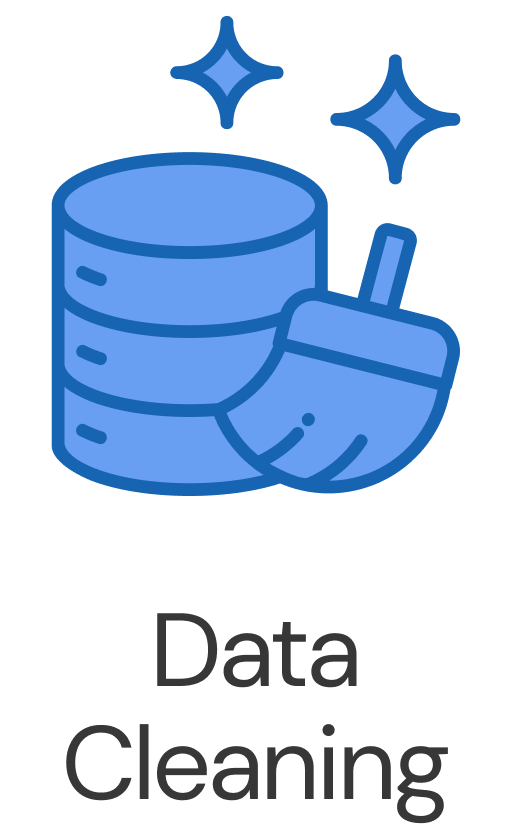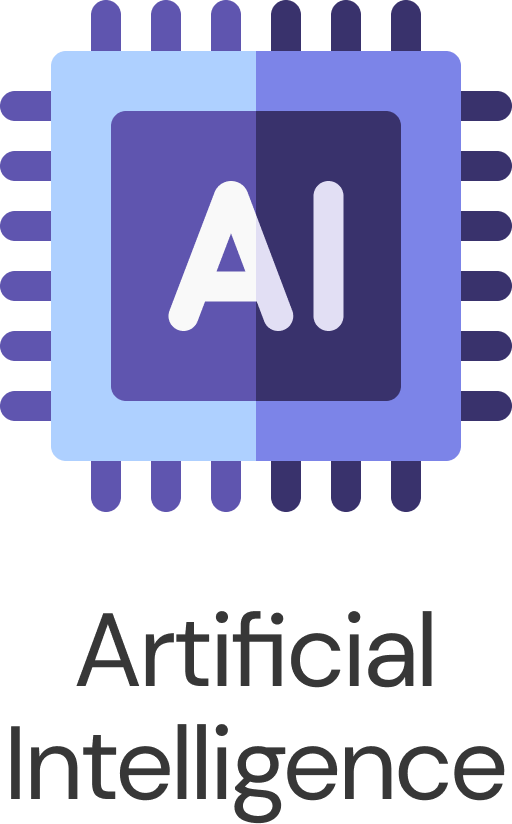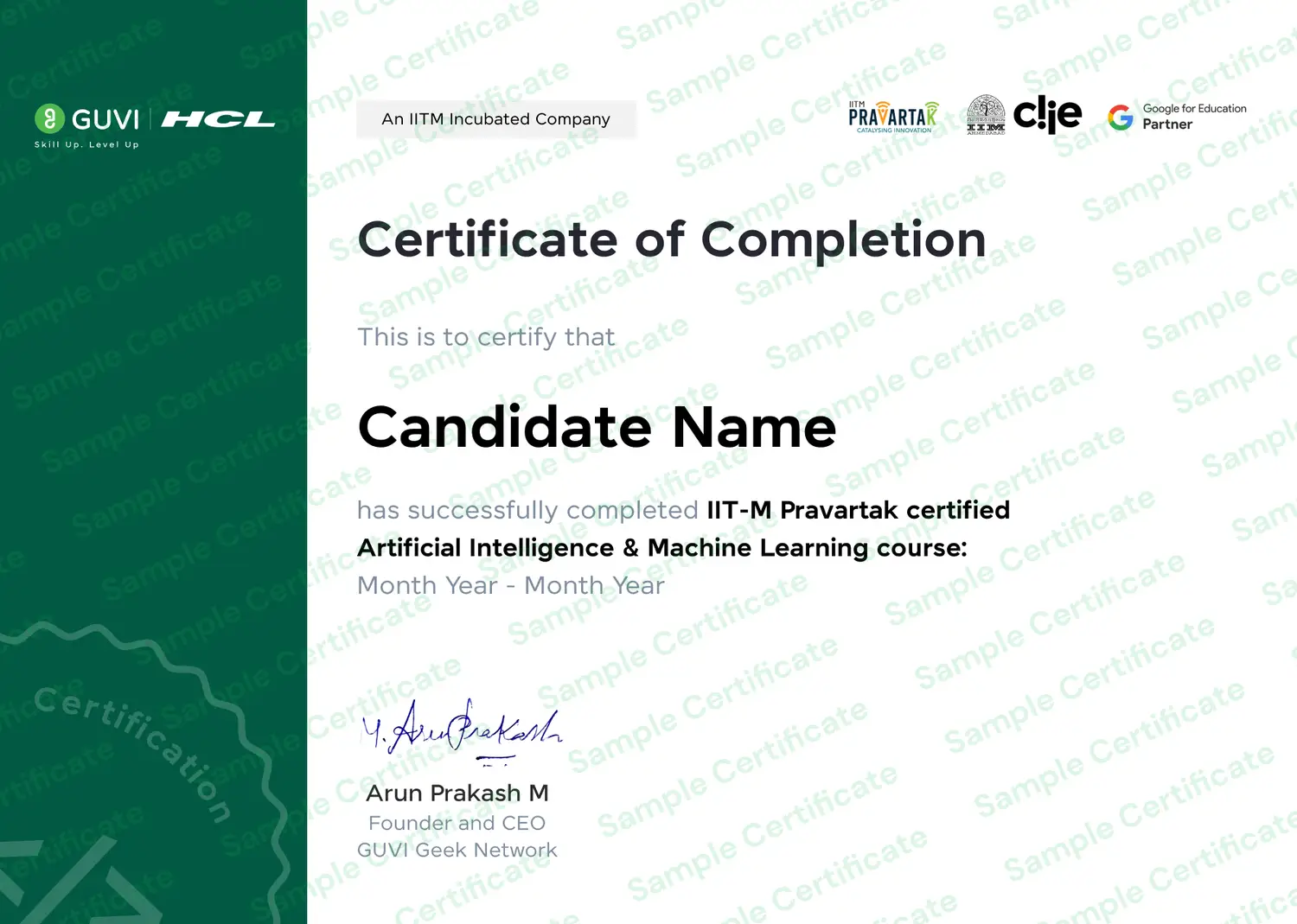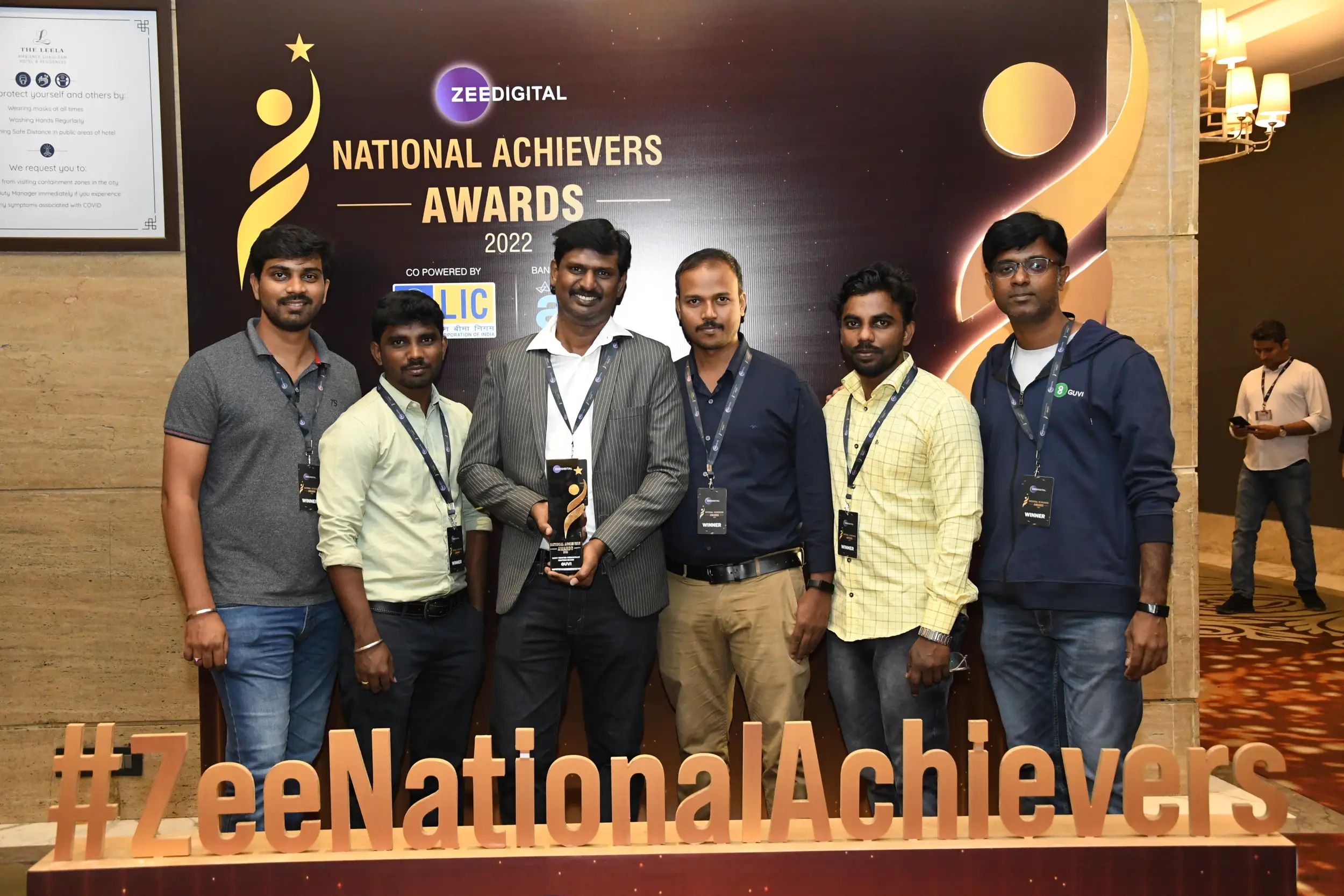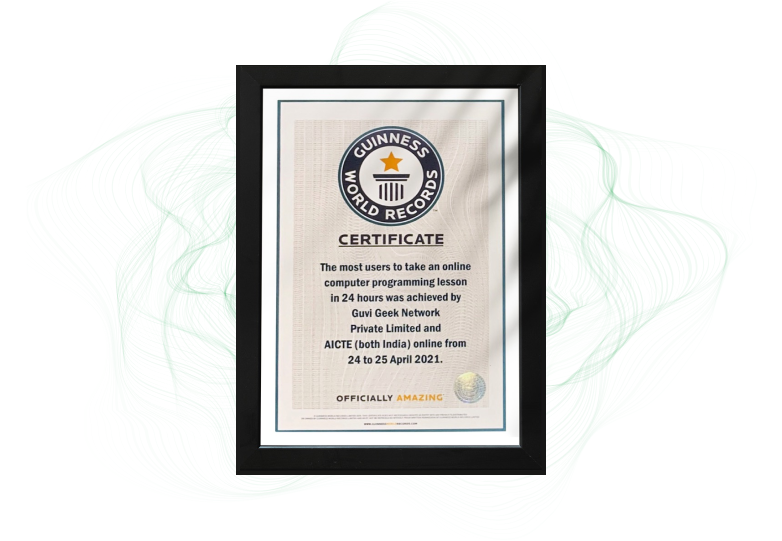

Learn from the best, build real-world projects, and get placement-ready for a successful AI/ML career!
By submitting, I agree to be contacted via phone, SMS, or email for offers & products, even if I am on a DNC/NDNC list
Duration
5 months (Weekend)
Format
Online Live Class learning Program
Hiring partners
600+ Companies
EMI Options
Upto 12 months
Zen Class offers the industry’s leading project-based professional courses powered by HCL GUVI(an IIT-M & IIM-A incubated EdTech company), the Zen class is exclusively curated by the founders(ex-PayPal employees). With World-class mentorship from industry experts, a vernacular approach in upskilling & more than 600 top companies like Flipkart, as hiring partners, Zen class gives a competitive advantage for its learners to land their dream job.
AI & ML Program is an Advanced Career Program from HCL GUVI's Zen Class. This Program will help you become an Artificial Intelligence & Machine Learning Expert in just 5 Months.
By the end of 2025, AI is forecasted to create 2.3 Million jobs, with the highest demand for roles such as AI developers, machine learning engineers & data scientists. Also, according to studies done by the World Economic Forum(WEF), domains such as Artificial Intelligence, Machine Learning, and Data Analytics could create 133 Million new jobs globally. The average salary earned by a professional AI & ML Engineer is ₹11.3 Lakhs per Annum in India.
In this program, we adopt a case study methodology to disseminate the latest Developments in Cloud Technologies, Deep Learning, NLP and Machine Learning Model Building and its Deployment with the fundamentals of Artificial Intelligence.
This will be a part where we will talk about basic AI
and how it is being used in industries. Moreover, we will shed some light on
the applications of Deep Learning.
1. What is AI?
2. The terminology of AI
3. The power of Machine Learning in the current era
4. The limitations of Machine Learning
5. A soft introduction to Deep Learning
6. Some cool applications of Deep Learning
We will formally introduce AI and the current industry practices. We will
discuss how to build and deploy state-of-the-art AI products.
1. Introduction to AI
2. Machine Learning basics
3. Workflow of a Machine Learning projects
4. Introduction to Deep Learning and difference between ML and DL.
5. Inducing AI using ML and DL
6. How to choose an AI project?
We will go through the basics of python with all essential beginner friendly
concepts of python programming like datatypes, loops, data structures and
functions, followed by assessments and assignments
1. Python - Basic
2. Why python ?
3. Python IDE
4. Hello World Program
5. Variables & Names
6. String Basics
7. List
8. Tuple
9. Dictionaries
10. Conditional Statements
11. For and While Loop
12. Functions
13. Numbers and Math Functions
14. Common Errors in Python
Since we have essential basics of python we will see some advanced
concepts like comprehensions, file handling, regular expressions, object
oriented programming, pickling and many more essential concepts.
1. Python - Advanced
2. Functions as Arguments
3. List Comprehension
4. File Handling
5. Debugging in Python
6. Class and Objects
7. Lambda, Filters and Map
8. Python PIP
9. Iterators
10. Pickling
11. Python JSON
12. Python API and web scraping
Since we need to handle huge amounts of data, we will be implementing
data handling techniques with Pandas library.And we will explore the
different miscellaneous functions of Pandas library in detail.
1. Introduction to Pandas
2. Series Data Structure - Querying and Indexing
3. DataFrame Data Structure - Querying, Indexing, and loading
4. Merging data frames
5. Group by operation
6. Pivot table
7. Date/Time functionality
8. Example: Manipulating DataFrame
We will dive into the SQL-based databases. We will understand the
problems with file-based systems and how databases can overcome those
challenges. We will learn the basics of SQL queries, schemas, and
normalization.
1. Data Modeling
2. Normalization, and Star Schema
3. ACID transactions
4. Select, insert, update & delete (DML and DQL)
5. Join operations
6. Window functions (rank, dense rank, row number etc)
7. Data Types, Variables and Constants
8. Conditional Structures (IF, CASE, GOTO and NULL)
9. Integrating python with SQL
It is always needed to analyze the data and preprocess it , since the real
world data is not always industry ready, so in this week we will be dealing
with a lot of data cleaning and Exploratory data Analysis techniques which
is a very crucial stage for any data science project
1. Structured vs Unstructured Data
2. Common Data issues and how to clean them
3. Textual data cleaning
4. Meaningful data transformation (Scaling and Normalisation)
5. Handling missing data
6. Outlier detection and correction
7. Example: EDA on Movies DataSet
Data Visualization is used to understand data in visual context so that the
patterns , trends and correlations in the data can be understood. We will do
a lot of visualization with libraries like Seaborn, Matplotlib etc inturn that
leads to effective story telling.
1. Read Complex JSON files
2. Styling Tabulation
3. Distribution of Data - Histogram
4. Box Plot
5. Pie Chart
6. Donut Chart
7. Stacked Bar Plot
8. Relative Stacked Bar Plot
9. Stacked Area Plot
10. Scatter Plots
11. Bar Plot
12. Continuous vs Continuous Plot
13. Line Plot
14. Line Plot Covid Data
We will cover the basics of Machine Learning and connect the use cases in
the domain of Machine Learning with the Artificial Intelligence.
1. What is ML and how it is related to AI?
2. Predictive Modelling
3. Correlation
4. Basics of regression
5. Ordinary least squares
6. Simple linear regression
7. Model building
8. Model assessment and improvement
9. Diagnostics
10. Multiple linear regression (model building and assessment)
11. Random forest & decision tree
We will cover more advanced concepts in ML.
1. Classification
2. Logistic regression
3. K nearest neighbours
4. Clustering
5. K means
6. Dimensionality reduction methods
7. Principal component analysis and its variants
8. Linear Discriminant Analysis
9. Support vector machine
Given the fundamental understanding of basic regression algorithms, we
will now deep dive into the Neural Networks. We will learn the basic unit of
neural networks and will slowly learn to create a network.
1. A single neuron details
2. The XOR problem and introduction to multi-layer perceptron
3. Understanding the output & Activation Functions
4. Derivatives of Activation Functions
5. Gradient Descent for Neural Networks
6. Backpropagation Algorithm
7. Understanding Computational graph
8. Backpropagation using computational graph
9. Random initialization
After having the basic understanding of neural networks, we will look into
deep neural networks and try to understand how to learn complex
functions.
1. Deep L-layer Neural Network
2. Forward Propagation in a Deep Network
3. Building Blocks of Deep Neural Networks
4. Forward and Backward Propagation
5. Parameters vs Hyperparameters
6. Parameters learning and hyperparameters tuning
We will dive into the practical aspects of deep learning using PyTorch. We
will learn the basic terminologies and their significance. Moreover, we will
learn how to implement neural networks in PyTorch.
1. Understanding the learning aspect of neural networks
2. PyTorch basics
3. Tensor and Datasets in PyTorch
4. Linear Regression in PyTorch
5. Multiple Input Output Linear Regression
6. Softmax Rergresstion
7. Shallow Neural Networks
8. Splitting the data (train/test/dev)
9. Understanding Bias and Variance
10. Understanding overfitting
11. Using regularization
12. Regularization techniques (like dropout)
We will learn normalization and other related concepts. Moreover, we will
look into the problems like vanishing gradient
1. Implementing Deep Networks
2. Convolutional Neural Network (Convolution, Activation Functions and
Max Polling, Multiple Input and Output Channels, GPU in PyTorch)
3. Normalizing Inputs
4. Vanishing / Exploding Gradients
5. Weight Initialization for Deep Networks
6. Numerical Approximation of Gradients
7. Gradient Checking
8. Gradient Checking Implementation
We will introduce computer vision and will try to understand how deep
learning can help us perform various tasks.
1. What is CV? (understanding with examples)
2. Edge detection with examples
3. Padding
4. Strided Convolutions
5. Convolutions Over Volume
6. One Layer of a Convolutional Network
7. Simple Convolutional Network Example
8. Pooling Layers
9. CNN Example
Given the idea about Computer Vision with Deep Neural Networks, now we
will understand another use case, which is NLP with deep learning.
1. Deep learning architectures for sequence processing
2. Recurrent neural networks
3. Managing context in RNNs and its drawbacks
4. Introduction to LSTMs and GRUs
After having the basic understanding of deep learning architecture for
language models, we will now look into more complex architectures.
1. Self Attention Networks: Transformers
2. Introduction to Encoder-Decoder models
3. Encoder-Decoder with RNNs
4. Attention and Beam search
5. Encoder and Decoder with Transformers
6. Transfer Learning through Fine-Tuning
Given the overall context of transformer models and transfer learning, now
we will discuss the architecture of Large Language Models and how to
write efficient prompts.
1. Introduction to Large Language Models
2. Description of GPT-3 and chatGPT architecture
3. Application of LLMs in various fields (Life sciences, Legal Languages,
etc.)
4. Basic description of other LLMs
We will now dive deeper into the prompt engineering and discuss the
effective ways of using OpenAI API.
1. Introduction to GPT 3.5 & 4 api's
2. Introduction & importance of Prompt Engineering
3. Prompting Guidelines
4. Outcomes of Prompt Engineering - Iterative learning, Summarizing,
Inferring & Expanding
5. Interactive ChatBot
6. Application to summarize & identify the sentiment of customer
feedback given to an e-commerce website
1. Image segmentation using DNNs
2. Gesture recognition using DNNs
3. Building NER for pharmaceutical dataset
4. Building and deploying Question Answering system with Hugging
Face
5. Face detection using Neural Style Transfer
& more
"Most Trusted Vernacular Edtech Brand"
Awarded by ZEE Digital during ZEE National Achievers Awards 2022.
AI-for-India 1.0 - Guinness World Record Holder
Broke the Record for most users taking an online computer programming lesson in 24 Hrs.
"Best Online Personalised Learning Programs"
Awarded by ENTREPRENEUR INDIA for having the best online personalized learning programs
₹1,30,999
₹89,999
(incl. taxes)
ZEN certified Artificial Intelligence & Machine Learning program follows a structured vetted curriculum, co-curated & continually refined by industry experts. This program will help you master the high-end AI & ML skills with the comfort of learning in English
At ZEN Class, we create the Job-ready skills that empower achievement, probably that's why unlike other programs available online, The ZEN class provides Placement Guidance. The real-world capstone projects in the Artificial Intelligence & Machine Learning Program go far beyond step-by-step guides, cultivating the critical thinking required for workplace relevance.
The 5-months online classes are scheduled for weekends (Saturday & Sunday) so that you attain crucial AI/ML skills without hampering your ongoing work or study.
We offer flexible payment options for this program. You can choose to pay the full fee upfront, or take advantage of our convenient EMI plans, available in durations from 3 to 12 months.
The Program features three real-world capstone projects:
Each project you work on will give you a hands-on learning experience & part of your portfolio will demonstrate your newly acquired skills with latest AI techniques, data analysis, feature engineering, ML & DL algorithms. By the end of the program, you will be proficient enough to train and evaluate predictive models using the cloud.
Zen Class provides you with a recording of every class with unlimited access to all the practice platforms. So, you barely get a chance to miss out on anything. You can just go back & revise them at your own time.
Yes, upon completion of the program, you will be accredited with Skill Certifications from HCL GUVI.
Request a Callback. An expert from the admissions office will call you in the next 24 working hours. You can also reach out to us at [email protected] or +91-9736097320
Apply now to Unlock Offer!
By submitting, I agree to be contacted via phone, SMS, or email for offers & products, even if I am on a DNC/NDNC list
Apply now to Unlock Offer!
By submitting, I agree to be contacted via phone, SMS, or email for offers & products, even if I am on a DNC/NDNC list
By submitting, I agree to be contacted via phone, SMS, or email for offers & products, even if I am on a DNC/NDNC list.
By submitting, I agree to be contacted via phone, SMS, or email for offers & products, even if I am on a DNC/NDNC list.
Final Step! OTP Verification
